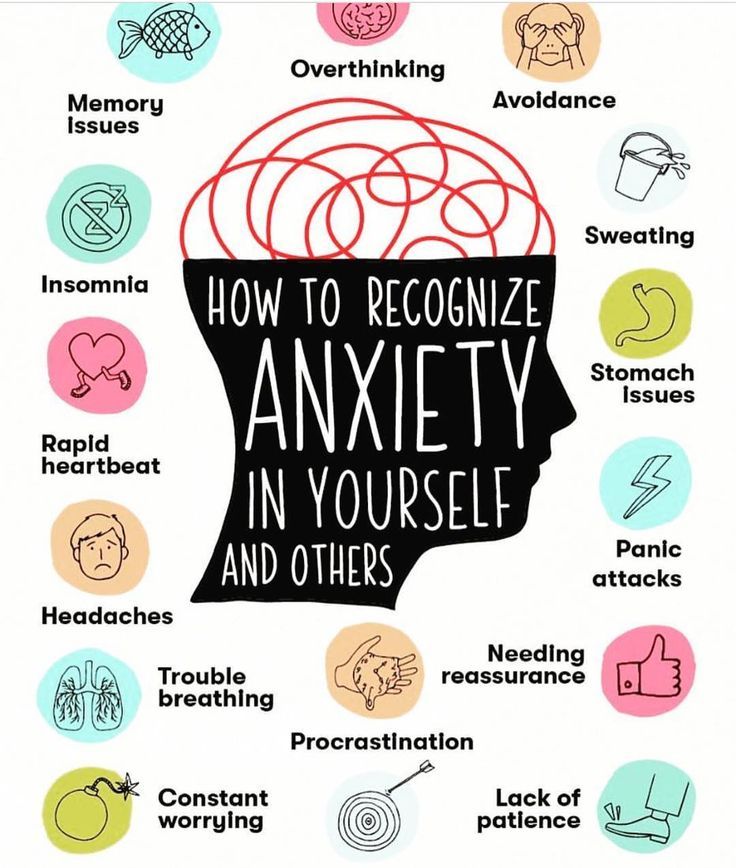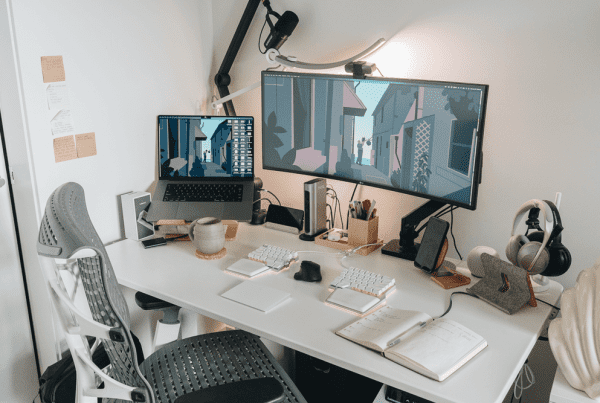I know I speak for more than myself when I say that anxiety has become an even more common issue in today’s day and age. In a study published in the Harvard Business Review, millennials (defined as 23-38-year-olds) and Gen-Zers (18-22-year-olds) have reported having even gone as far as leaving a job due to mental health-related reasons such as experiencing high-stress and anxiety.
Anxiety comes in many forms, but it’s most commonly described as feeling worried or nervous about certain situations. When this feeling builds and escalates, it can be debilitating and carry over to affect our physical health as well.
I suffer from anxiety issues when I am faced with too much stress whether at work or in my personal life. Often, the pressure that I put on myself to be productive and always working can push me over the edge as well. Although this is definitely still a work in progress in my life, I wanted to share a couple of tips and tricks that work for me when combating anxiety.
5 Tips on Combating Anxiety
1. Go on a long walk and enjoy the fresh air
There is a strong connection between spending time outdoors and reducing negative emotions such as anxiety and depression. Research shows that proximity to green space can restore the capacity for concentration and attention. It’s also known to improve sleep quality and nurture creativity.
Some people prefer sitting at the beach or the park but being someone who is innately restless I prefer to go outside and take a long walk when my anxiety is is high. Sometimes it’s with music, sometimes it’s without. Either way, I find that it’s a super-effective way to sort out my jumbled-up thoughts and calm my nerves with tons of fresh air and deep breathing.
2. Taking a Nap
For some, this tip is much easier said than done but I’ve always been someone who can fall asleep relatively easily.
Sleep can help recharge your brain and improve your focus, concentration, and mood. Allowing your mind to enter a restful state can often help calm any anxiety you may be feeling. If I feel that my anxiety is high during the day, I try to take a lunchtime or early afternoon nap—just 10-15 minutes. This is often a great way for me to turn my busy mind off and allow myself a quick recharge in the middle of my day.
If you don’t have the freedom to do so midday, sleeping early and getting a full night’s sleep can often help you reset your emotions and mind for the next day.
Sleep has always been a surefire way for my brain to reset and look at my problems and stressors in a different light.
3. Disconnect from social media (and sometimes people)
Recently, I tried taking a 24-hour break from technology. This for me meant no TV, no computer, no phone, no tablets, and very critically, no social media. As someone who depends on social media as a form of income, I initially thought that missing out a day’s worth of social media as a scary and stressful thing.
However, during my actual experiment, I found that social media was the easiest thing for me to forget about. I found myself missing Netflix and my Nintendo Switch more than my phone (especially since we’re all in quarantine). This made me realize that life really does go on even when I back away from social media for a while.
The endless content I was consuming daily, clearly wasn’t even bringing me that much additional joy, as it wasn’t something I missed when I was bored.
I also find that at times when my anxiety is especially bad, disconnecting from people, in general, can often help my mind reset. Turning off your notifications or even just turning off your phone gives you less to worry about and more time to look inward and identify what’s really bothering you and how you can work towards fixing it.
4. Journaling
I am a huge supporter of journaling because it’s been a way of release for me ever since I was little. Often, the cause of my anxiety is just me allowing too many thoughts and worries doggy pile on top of each other, and letting those emotions get the best of me. Journaling has always been my way of brain-dumping all of my negative energy and emotions in a safe and effective method.
Although I personally rarely look back and read my old journals, for some it’s a great way to understand your feeling and thoughts more clearly. The practice done consistently can help you gain control of your emotions and improve your mental health. This is because feelings of anxiety can often snowball when left unattended and ignored. The roots of your anxiety can improve through careful examination and identification but you’ll have to break them down first.
5. Crying
Although this tip may seem counterintuitive, crying is actually my secret weapon when combating anxiety and depression. Crying activates the parasympathetic nervous system, which is known to help people relax. This will cause a direct self-soothing effect on most.
It also helps to release oxytocin and endorphins which are known as the “feel-good” chemicals. The release of these chemicals can relieve both physical and mental pain as well as improve the mood. Often, when you have an anxiety attack, it is due to being stuck in a state of negative emotions.
Lastly, crying always helps me sleep, which is an added bonus. As I mentioned above, sleep is another great way to help reset your mind and body, and often after I cry and release all of the feel-good chemicals as well as the negative feelings, I feel tired and prepared for a long deep sleep.








